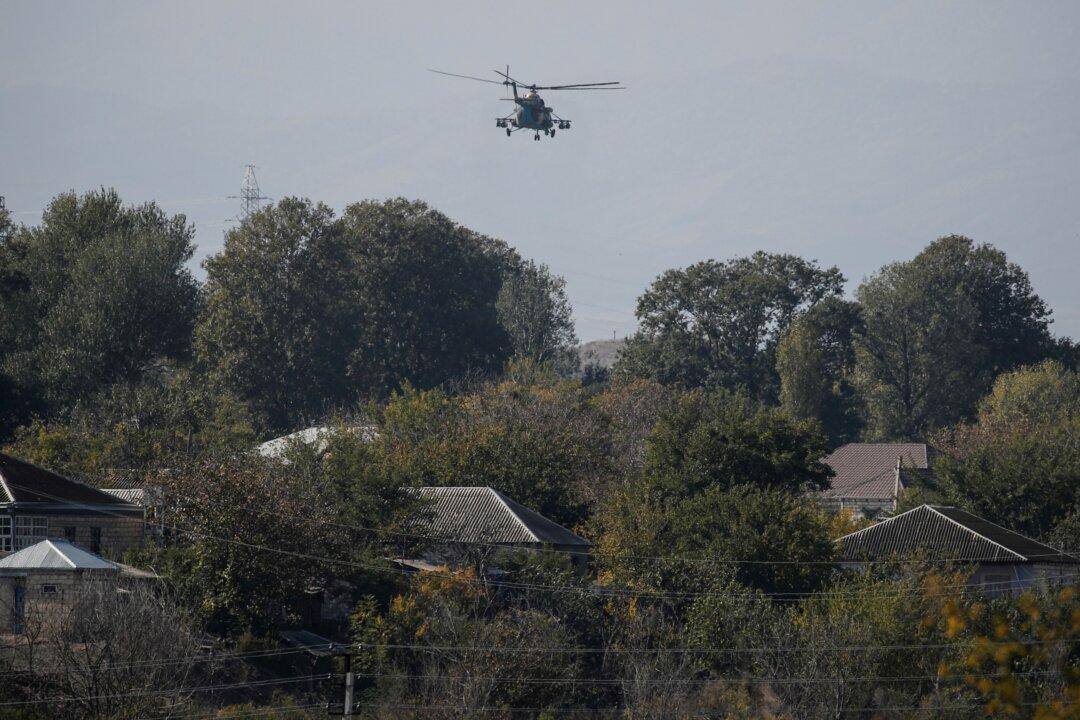Cross-border violence between Armenia and Azerbaijan erupted again this week, following several months of relative calm between the longstanding regional foes.
On Feb. 13, Armenia’s defense ministry said four of its soldiers were killed—and several others injured—when their border post came under fire by Azerbaijani forces.





